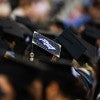
During two days of festivities May 3-4, Rice University’s Class of 2024 graduates celebrated the culmination of their experiences on South Main while also looking forward to the bright futures that await them.

During two days of festivities May 3-4, Rice University’s Class of 2024 graduates celebrated the culmination of their experiences on South Main while also looking forward to the bright futures that await them.

Engineering professor Zygourakis celebrated for 44 years at Rice
Kyriacos Zygourakis, the A.J. Hartsook Professor of Chemical and Biomolecular Engineering at Rice, celebrated his retirement after 44 years at Rice.
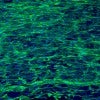
Aligned peptide ‘noodles’ could enable lab-grown biological tissues
A team of Rice researchers and collaborators have developed peptide-based hydrogels that mimic the aligned structure of muscle and nerve tissues, which could enable the development of functional lab-grown tissue.
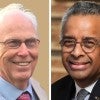
Rice’s Harvey, Ramesh named to National Academy of Sciences
Rice University’s Frank Reese Harvey and Ramamoorthy Ramesh are among 120 new U.S. members elected to the National Academy of Sciences.
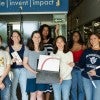
Heartbeat HERoes win Rice’s 2024 Engineering Design Showcase
Team Heartbeat HERoes claimed victory at Rice University’s Oshman Engineering Design Kitchen’s (OEDK) annual Huff OEDK Engineering Design Showcase last month. The team secured the 2024 Woods-Leazar Innovation Award along with a $5,000 cash prize for its project in medical engineering.

Two Rice faculty elected to American Academy of Arts and Sciences
Rice professors Pedro Alvarez and Antonios Mikos have been elected fellows of the American Academy of Arts and Sciences, one of the oldest learned societies in the nation.
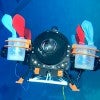
Underwater robot pioneers new energy-efficient buoyancy control
A remotely operated underwater robot built by a team of Rice University engineering students pioneers a new way to control buoyancy via water-splitting fuel cells.
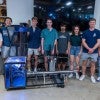
Rice students build low-cost cold spray metal 3D printer prototype
A team of Rice University students has developed a cold spray metal 3D printing device that relies on pressure and velocity rather than temperature to create a metal part.

Faculty recognized with award for superior teaching
Nine Rice University faculty members received the 2024 George R. Brown Award for Superior Teaching, which honors top Rice instructors based on votes from alumni who graduated within the past two, three and five years.

Faculty, staff, students honored for excellence in teaching, mentoring, service
Each year, Rice honors members of the university community who have served students through outstanding teaching, dedication and service.
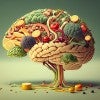
Study uncovers neural mechanisms underlying foraging behavior in freely moving animals
Rice neuroscientist Valentin Dragoi and team shed light on what happens in the brain of freely-moving macaques engaged in foraging behavior.
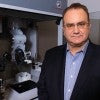
Rice bioengineers win $1.4M ARPA-H grant for osteoarthritis research
Bioengineers at Rice University have been awarded $1.4 million as part of a multi-center consortium funded by the Advanced Research Projects Agency for Health (ARPA-H) to develop strategies for reversing the effects of osteoarthritis.

Rice alumna wins prestigious merit-based fellowship for new Americans
Rice University alumna Minjung Kim is one of 30 recipients of the Paul & Daisy Soros Fellowships for New Americans, a merit-based graduate school program for immigrants and children of immigrants.
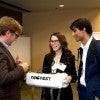
Duke-Makerere team claims first place in Rice360 design competition
A team of undergraduate students from Duke University and Makerere University won the top prize at the Rice360 Institute’s annual Global Health Technologies Design Competition as 24 international teams representing seven countries participated in the event April 12.

Rice engineering student builds Rice campus out of Lego pieces
Rice engineering student Andrew Linhart built a full scale model of the Rice campus using over 8,000 Lego pieces and help from his friends.